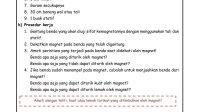Kunci Jawaban Lks Ipa Kelas 9 Semester 2 Kurikulum 2013 – Di halaman 92 dari […]
Andronezia.com - Kunci Jawaban Tema 5 Kelas 2 Halaman 155: Mengupas Materi dengan Kreativitas di Sekolah Dasar. Halo […]
Related News
Headlines
andronezia.com
Curug Nangka Camping Ground, Air terjin di Tengah Hutan Pinus yang Menakjubkan
Di bawah kaki Gunung Salak, terdapat Curug Nangka Camping Ground yang merupakan destinasi ideal bagi […]
Dusun Semilir Bawen Semarang, Nikmati Pemandangan Indah dan Wahana Menarik
Liburan bersama keluarga adalah pilihan yang tepat untuk mengurangi kelelahan, dan berkumpul di destinasi wisata […]
Wisata Kawah Ijen, Destinasi yang Menyuguhkan Pemandangan Luar Biasa
Berlibur di Wisata Kawah Ijen bisa jadi solusi efektif untuk melepas kepenatan. Keindahan alamnya yang […]
Green Canyon Pangandaran, Tempat Wisata Liburan Untuk Penggemar Alam
Bila mendengar istilah “canyon”, pikiran seringkali terarah pada Grand Canyon yang berlokasi di Amerika Serikat. […]
Taman Safari Bogor, Kebun Binatang Berkonsep Safari Journey
Ingin mengetahui destinasi liburan yang cocok untuk keluarga? Taman Safari Bogor adalah opsi yang sempurna […]
Tumpeng Menoreh Kulon Progo, Lokasi Hingga Tips Mengunjunginya
Yogyakarta kembali menjadi pusat perhatian berkat adanya destinasi wisata baru yang menarik, terletak di Kulon […]
Wisata Cikole Lembang, Destinasi Wisata Unggulan di Bandung yang Jangan Dilewatkan
Siapa pun yang tengah mencari destinasi liburan yang menarik, salah satu pilihan yang layak dipertimbangkan […]
Desa Wisata Guranteng, Cocok Bagi yang Ingin Melepas Penat
Berkunjung ke destinasi liburan yang dipenuhi oleh keindahan alam akan meningkatkan keseruan masa liburan tanpa […]
Wisata Rancaupas, Destinasi Wisata yang Komplit di Bandung
Bandung dikenal dengan pesonanya yang menyegarkan di tengah alam. Wisata Rancaupas, di antara berbagai destinasi, […]
Wisata Pantai Tanjung Pasir, Inilah Harga Tiket Masuk dan Daya Tarik yang Dimiliki
Berlibur merupakan salah satu hal yang menyenangkan. Terutama berlibur ke pantai yang ada di kota […]
































